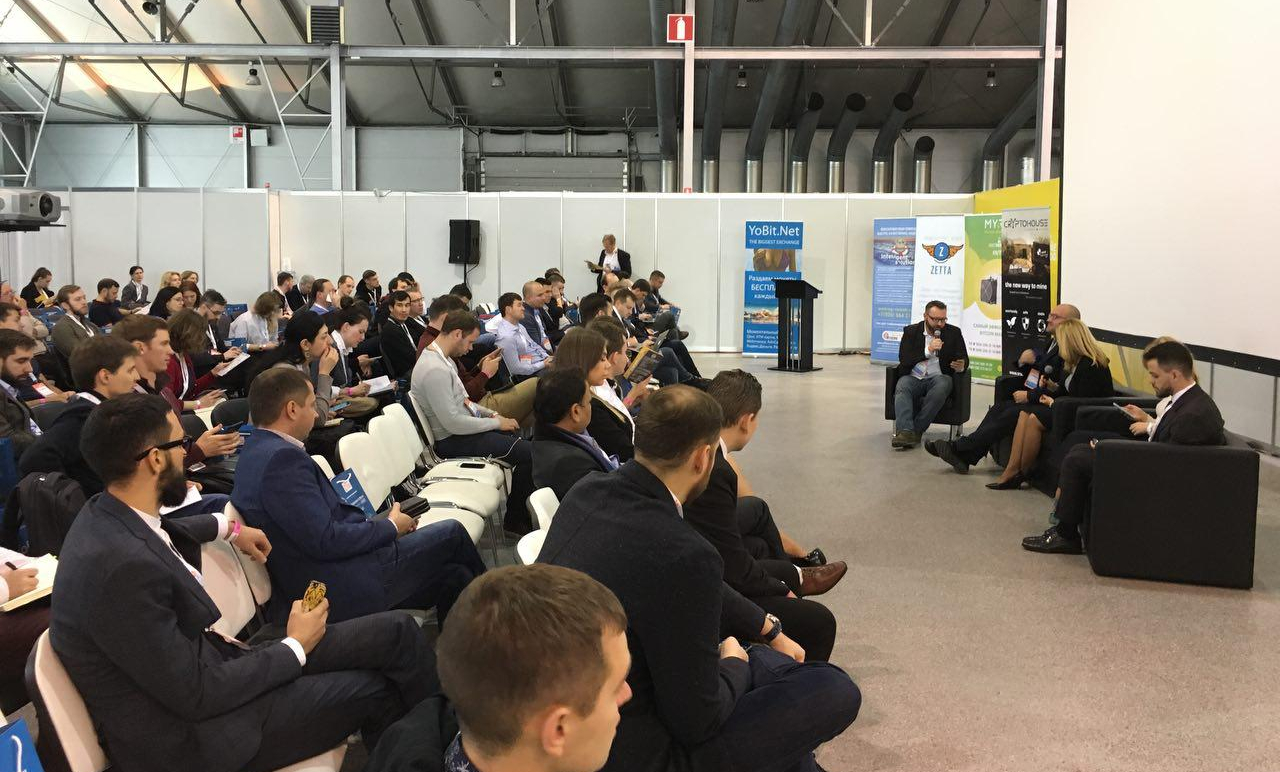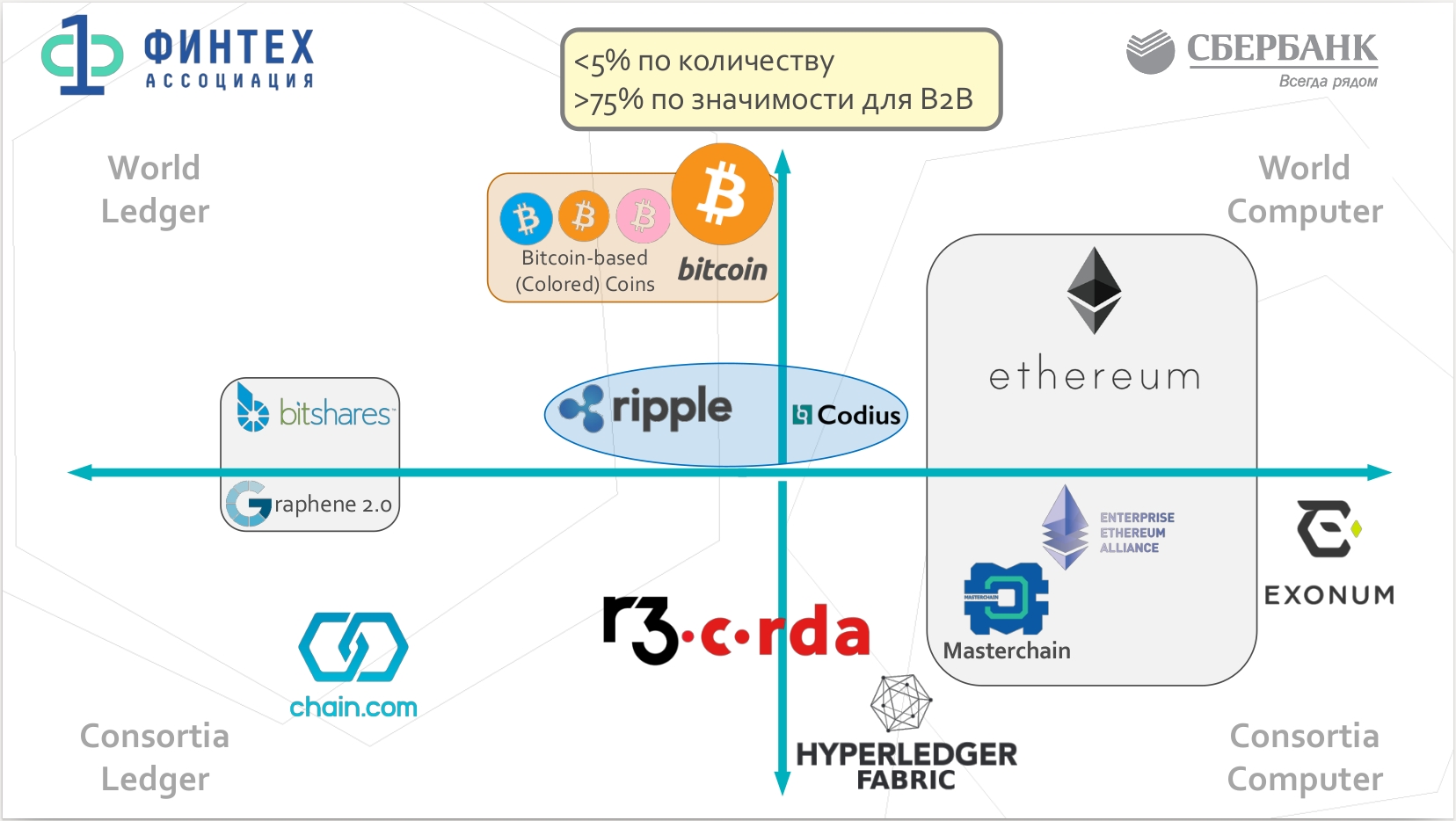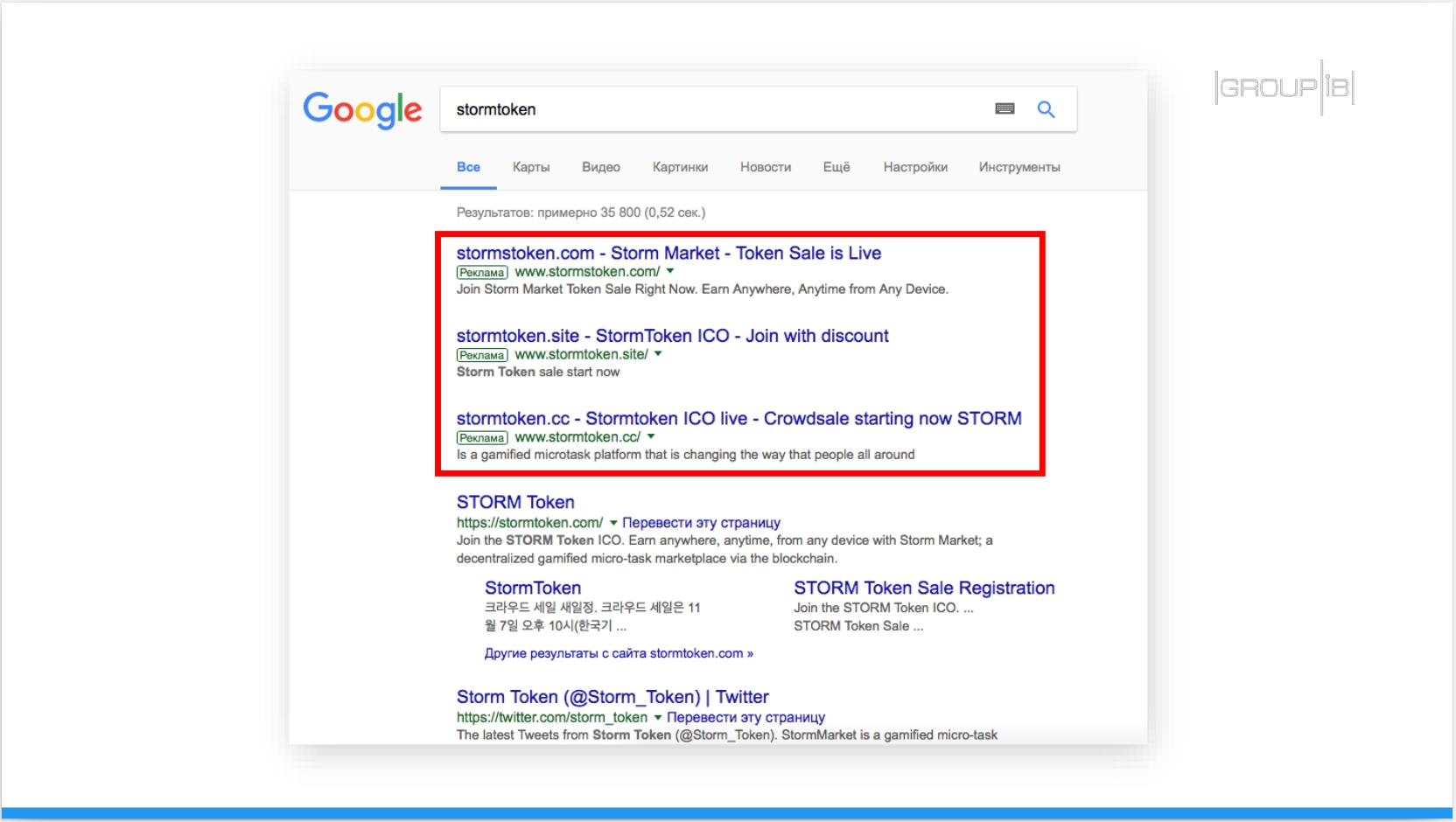
To regulate ICO in the Russian Federation, it is not even necessary to change the Civil Code; tokens, no doubt, will be controlled by the state; mining cryptocurrency should be taxed; Records in the domestic Masterchain platform will be evidence in court, and ICO projects should pay more attention to cybersecurity. Such statements were made at
Blockchain & Bitcoin Conference Moscow on November 15–16.
The main thing from speeches speakers
“ICO will be regulated, but mining is very difficult to enter into the legal field”
Elina Sidorenko , head of the working group under the State Duma of the Russian Federation on estimates of the risks of cryptocurrency turnover, said: in the case of ICO regulation, state bodies in Russia and abroad are afraid that they can remain extreme. This is natural, since when something new appears on the market, it is the state that should be responsible for how efficiently and effectively the innovation will be organized.
“Therefore, you should understand that, maybe, the tokensales in the Russian Federation will not be equated with an IPO, but in any case, the ICO will receive regulation. First of all, we must determine the contractual side of our relationship. Second, we must define the guarantees of the parties. Third, we need to understand where crowdinvestment ends and the system of an organization’s relations with a shareholder begins. And the last thing - we have to determine the state body that will be responsible for the quality of the organization of ICO, ” Elina Sidorenko said.

“Taking the world by thread” is a great investment idea, the speaker said. She noted that in Russia there are key banks and there are those who live only through ruinous loans. And it is the key banks that are already ready to engage in cryptoeconomics.
“But key banks do not limit their development to the emergence of a new lending model. For them, cryptoeconomics is an opportunity to create an improved banking service, ” Elina Sidorenko shares her thoughts.
However, in her opinion, it is necessary to speak not about the ICO itself, but about the tokenization of the economy. Raising funds through the placement of coins is only one part of the issue. And tokenization will allow creating efficient, light and high-quality services for the development of all fields of activity in the country.
Elina Sidorenko also reported that the state is at a loss to define mining. This makes it difficult to create any laws for such activities. It turns out that neither cryptocurrency nor their mining is officially banned in Russia.
 “When I go to work at MGIMO, I am, in essence, a coin of money. Because I give lectures, spend a lot of time and get some potential, which the accounting department values as my salary. For my energy, I get money on the card. This is the same mining, only the technological approach is completely different. But do we make money? No, we get paid. In mining, everything is exactly the same
“When I go to work at MGIMO, I am, in essence, a coin of money. Because I give lectures, spend a lot of time and get some potential, which the accounting department values as my salary. For my energy, I get money on the card. This is the same mining, only the technological approach is completely different. But do we make money? No, we get paid. In mining, everything is exactly the same , ”says Elina Sidorenko.
According to her, lawmakers are faced with the problem of putting mining into legal form. But, as the speaker noted, the extraction of cryptocurrencies should be taxed. Because the miner works and receives a certain income. The only question is how serious taxation should be. It is beneficial for the state to apply the easy taxation model in order not to face massive non-payment of taxes.
"Entries in Masterchain can be evidence in a Russian court"
Kirill Ivkushkin , deputy head of blockchain development at the FinTech Association, said that the development of Masterchain, the first legal
blockchain in the Russian Federation, is in full swing.
First of all, Masterchain will be designed for making decisions on the financial market of the country. It will allow market participants to conduct operations without intermediaries. When developing Masterchain, the team studies existing platforms and adapts their advantageous sides to Russian legislation.
The speaker also presented a blockchain platform map. According to it, 75% of B2B solutions are built on a small number of “selected” blockchains, which occupy only 5% of the total mass of decentralized networks.

As for Russia, more than 75% of all B2B solutions are built on just four blockchains: Ethereum, Exonum, HyperLedger Fabric and Masterchain.

According to the speaker, by mid-2018, some projects based on Masterchain will be implemented and it will be possible to evaluate the effectiveness of the platform. In this case, cryptography will be implemented according to GOST, and the blockchain itself will become a means of standard integration with the systems of financial institutions. It will act as a distributed data warehouse and tool for remote diagnostics, deployment and maintenance.
Now Masterchain is based on Ethereum Go 1.5.0, but it is planned to transfer to 1.7.2. Whitelisting support will be available to control address-level connections and TSL certificates.
Now Masterchain can be represented as follows:

As for the legal aspects, the records from Masterchain can become full-fledged evidence in a Russian court - thanks to cryptography on GOST and the certification of the FSB. The developers believe that the use of Masterchain by large participants in the Russian financial market will form a much faster judicial practice.

"To regulate cryptocurrency and tokens it is not necessary to change the Civil Code of the Russian Federation"
Igor Matyukhin , a member of the Expert Council on Legislative Support of FinTech in the Russian Federation, suggested that the cryptocurrency and the ICO create a “tectonic” shift in the economy and society. Technical algorithms assume some of the functions of the state.
But at the same time there is a cryptocurrency paradox. A significant number of people perceive it as a means of payment and, at the subconscious level, they understand that it is money, but, nevertheless, such assets do not have legal status anywhere in the world except Japan.
If you look at the paradox through the eyes of an economist, then everything looks quite simple: cryptocurrencies have the functions of exchange, preservation of value and measure of value, which means they can be called money. But by lawyers, money is first and foremost a legal means of payment.
Due to this paradox, according to the speaker, there is not yet full-fledged legislation on cryptocurrency regulation in the world. In Russia, operations with cryptocurrencies are not prohibited, but transactions on them may become the object of close attention of the authorities. This means that internal organs may be interested in the origin of the funds and the purpose of their use. Therefore, regulators are trying to solve the following tasks:
- fighting fraud and the black market;
- protection of market participants;
- anti-money laundering;
- creating a base for licensing and taxation;
- creating an attractive environment for promising technologies.
Analyzing the issue of tokens, Igor Matyukhin said that for each of the types of tokens, their own regulation should be created. At the same time, it is necessary to create such a concept as a cryptotool in the legal field and eliminate obstacles for crowdfunding. According to the speaker, for this, it is not even necessary to create a separate law or change the Civil Code of the Russian Federation. He believes that it is necessary to take into account Article 128 of the Civil Code of the Russian Federation and to proceed from the fact that cryptocurrencies and tokens are “other property”.
Competent regulation, as the speaker said, will give an influx of internal and external investment and allow large institutional players to “enter the game”. Moreover, even a business that is not related to the blockchain will be able to use cryptotools to finance its activities.

“ICO projects should pay more attention to IT security”
Alexander Lazarenko , technical manager of blockchain projects protection at Group-IB, said that hackers who want to steal money from ICO projects or harm them, are often used in five ways. And the most common among them is banal phishing.
According to statistics for the last year, 56% of all the funds stolen from ICO were stolen using phishing. This is about $ 115 million. According to internal data from Group-IB, a serious phisher earns an average of $ 1 million a month.

Scammers simply create a website with a similar address and design and set the address of their own wallet to transfer funds.


The second way that scammers use is DDoS attacks. Dudosar Dudos, the site of the ICO-project lies, the project team rushes to solve the problem of Dudos, at this time the ICO is running out of valuable time, and investors are convinced that the project’s IT security is not the best.

The third way is site deface. Usually hackers break into the main page and replace it with their own - often containing derogatory text or drawing. But hackers of ICO projects go further: they replace the page with an exact copy, but they enter their own wallet address, where unsuspecting investors enter and put money in.

The fourth way to steal money is to exploit the vulnerabilities of smart contracts. Here, hackers can take advantage of code defects or the low efficiency of the contract itself. The most famous precedent was with the ICO investment fund The DAO, when the attacker stole about $ 53 million. He used a vulnerability in the splitDAO function embedded in the code.

The last way the speaker called the penetration through the project team. The main entry points (hacking) have become unprotected servers, mail of employees, their social networks, surfing the Internet, easy passwords.

Thus, cyber threats await ICO-projects at virtually every stage of development.

The conclusion is that you need to pay particular attention to cybersecurity when the project goes to ICO. You need to conduct a security audit, look for phishing resources, analyze personnel risks and conduct training for employees. Not to mention DDoS protection and reliable firewall.
The next Smile Expo blockchain conferences will be held in Cyprus , Malta , Slovenia , the Philippines and Gibraltar . The nearest Russian event will take place in St. Petersburg on February 13, 2018.
UPD: ready video report